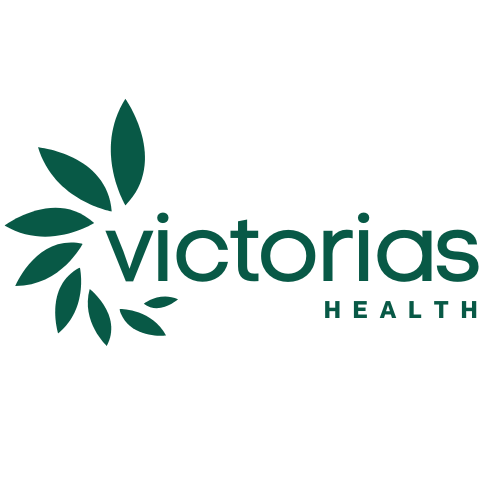Plant sterols are popular cholesterol-lowering supplements known for their effectiveness.
Recently, questions have arisen about whether these supplements can cause weight gain.
Mechanisms Behind Weight Gain
The potential for plant sterols to cause weight gain involves several mechanisms:
Impact on Gut Microbiota:
- Altered Gut Bacteria Composition:
- Plant sterols can alter the composition of gut bacteria.
- The gut microbiota plays a crucial role in regulating metabolism, and changes in its composition can disrupt these regulatory functions.
- Metabolic Changes:
- Disruptions in gut bacteria can lead to metabolic changes that may increase the likelihood of weight gain.
- The balance of beneficial and harmful bacteria can affect how efficiently the body processes nutrients and stores fat.
Changes in Fat Absorption:
- Increased Fat Storage:
- Plant sterols might affect how fats are absorbed in the intestines.
- By interfering with the normal process of fat absorption, plant sterols can cause more fat to be stored rather than utilized for energy.
- Altered Digestion:
- Changes in fat digestion and absorption can lead to an increase in body fat.
- The intestines may process fats differently, leading to more fat being retained in the body.
Alterations in Metabolism:
- Energy Utilization:
- Altered gut microbiota can impact the body’s energy utilization.
- It can lead to an imbalance in how the body uses and stores energy, contributing to weight gain.
- Fat Metabolism:
- Disruptions in gut bacteria can affect fat metabolism, causing the body to store more fat.
- It can result in an increase in overall body weight over time.
Understanding these mechanisms helps in developing strategies to mitigate this side effect.
Benefits of Plant Sterols

The primary benefit of plant sterols is their cholesterol-lowering effect. By reducing LDL cholesterol levels, they help lower the risk of heart disease and stroke.
It is achieved by plant sterols blocking the absorption of dietary cholesterol in the intestines, leading to less cholesterol entering the bloodstream.
Additionally, plant sterols may offer other significant health benefits, including:
Anti-Inflammatory Properties
Plant sterols have been shown to possess anti-inflammatory properties. Chronic inflammation is a risk factor for various diseases, including:
- Heart disease
- Diabetes
- Certain cancers
Antioxidant Effects
As antioxidants, plant sterols help protect cells from damage caused by free radicals.
Protective effects can reduce the risk of chronic diseases and support overall health and longevity.
Improved Immune Function
Some studies suggest that plant sterols can enhance immune function.
By modulating the immune response, they may help the body better defend against infections and other diseases.
Prostate Health
Plant sterols, particularly beta-sitosterol, have been studied for their potential benefits in supporting prostate health.
They may help reduce symptoms of benign prostatic hyperplasia (BPH), a condition that affects many older men, by improving urinary flow and reducing inflammation in the prostate gland.
Potential Benefits
Emerging research indicates that plant sterols might have additional benefits, such as improving skin health and aiding in the management of conditions like psoriasis and eczema due to their anti-inflammatory properties.
Side Effects of Plant Sterols
While plant sterols are generally considered safe, they can have side effects.
Common side effects include gastrointestinal issues like:
- Bloating
- Diarrhea
- Nausea
Rare side effects might include allergic reactions. A more detailed discussion is necessary regarding weight gain as a potential side effect.
Some studies indicate that plant sterols could lead to weight gain.
Possible reasons for this include disturbances in the gut microbiome, which can affect metabolism and fat absorption.
Comparison with Other Cholesterol-Lowering Agents
Plant sterols are often compared with statins, another popular cholesterol-lowering option.
Statins are highly effective in reducing LDL cholesterol and have a well-documented safety profile, but they can cause side effects such as muscle pain and liver damage.
Plant sterols offer a more natural alternative with fewer severe side effects, although weight gain remains a concern.
Another comparison can be made with oat beta-Lucas, a fiber that also lowers cholesterol. While both plant sterols and oat beta-glucan are effective, their side-effect profiles differ.
Oat beta-glucan is less likely to cause weight gain and has beneficial effects on gut microbiota, contrasting with some of the concerns surrounding plant sterols.
Managing Side Effects
To mitigate the potential weight gain associated with plant sterols, several strategies can be employed.
One approach is to monitor and adjust the dosage under medical supervision.
Adding a balanced diet rich in fiber, such as oat beta-glucan, can help maintain gut health and counteract some of the microbiome disturbances caused by plant sterols.
Regular physical activity is also crucial in managing weight.
For individuals particularly concerned about weight gain, exploring alternative cholesterol-lowering strategies, such as dietary changes, increased physical activity, or other supplements like oat beta-glucan, may be beneficial.
Consulting with healthcare providers to tailor a personalized approach is recommended.
Summary
The relationship between plant sterols and weight gain is complex.
While plant sterols are effective in lowering cholesterol and offer several health benefits, they may also lead to weight gain in some individuals.

